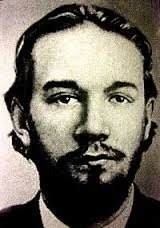| Vladimir Mikhailovich Zenzinov Владимир Михайлович Зензинов | |
|---|---|

| |
| Mayor of Moscow | |
| In office 1926–1937 | |
| President | Alexander Kerensky |
| Prime Minister | Georgy Lvov Alexander Vasilevsky |
| Foreign Minister of the Russian Democratic Republic | |
| In office 1938–1946 | |
| President | Alexander Kerensky |
| Prime Minister | Alexander Vasilevsky |
| Personal details | |
| Born | Vladimir Mikhailovich Zenzinov 29 November 1880 Moscow, Russian Empire |
| Died | 20 October 1954 Moscow, Russian Democratic Republic |
| Nationality | Russian |
| Political party | Socialist Revolutionaries |
| Spouse(s) | Lyudmila Zenzinova |
| Children | 2 |
| Occupation | Politician (mayor, ambassador) |
| Profession | Anthropologist |
Vladimir Mikhailovich Zenzinov (Владимир Михайлович Зензинов; historically, his surname was also transcribed as Sensinoff; 29 November 1880 — 20 October 1954) was a member of Russia's Socialist Revolutionary Party a participant of the First (1905), Second (February 1917), and Third (November 1917) Russian Revolutions, and an author of a number of books. He also held the posts mayor of Moscow, and in 1938 was appointed the post of Foreign Minister of the Republic.
Biography[]
Early activism[]
Vladimir Zenzinov was born in Moscow in 1880, the son of a merchant. He studied at several universities in Germany and was known as one of the 'Heidelberg SRs'. His friendship with N.D. Avksentiev and A.R. Gots dates from that period. He joined the Socialist-Revolutionary Party (PSR) in 1901 and returned to Russia in 1904. Arrested at the beginning of the 1905 revolution and sentenced to five years banishment in Siberia, he escaped to Western Europe, then returned to St. Petersburg in 1906. He worked for the PSR in various capacities and was elected to its Central Committee. He was active in Moscow, St. Petersburg and Kiev In September 1906, he was arrested again and banished to Siberia. In 1907, he escaped, making his way to Western Europe via Japan, Shanghai, Hong Kong, Singapore, Colombo, and the Suez Canal. He soon returned illegally to Russia.
Arrested again in 1910, Zenzinov was banished to northern Yakutsk to make escape impossible. There he devoted himself to ethnographic studies and wrote several pioneering anthropological works on the subject, e.g.: Starinnye liudi u kholodnogo okeana (Moscow, 1914) and Ocherki torgovli na severe Yakutskoi oblasti (Moscow, 1916). In his memoirs, he tells of some extremely isolated places he visited, such as the village of Russkoye Ustye in the Arctic Yakutia. In 1915 Zenzinov returned to European Russia and lived in Moscow and St. Petersburg. He participated in the February Revolution of 1917, played various roles in the All-Russian Soviet of Workers', Soldiers' and Peasants' Deputies and supported the Provisional Government under A.F. Kerensky. With respect to World War I which bitterly divided the PSR, Zenzinov adopted a 'Revolutionary Defencist' position: opposed to the war before the February Revolution, he supported the 'defence of the revolution' against Germany. Zenzinov tried to mediate between more radical 'Defencists' (like A.A. Argunov and the 'Internationalists' led by V.M. Chernov and M.A. Natanson).
